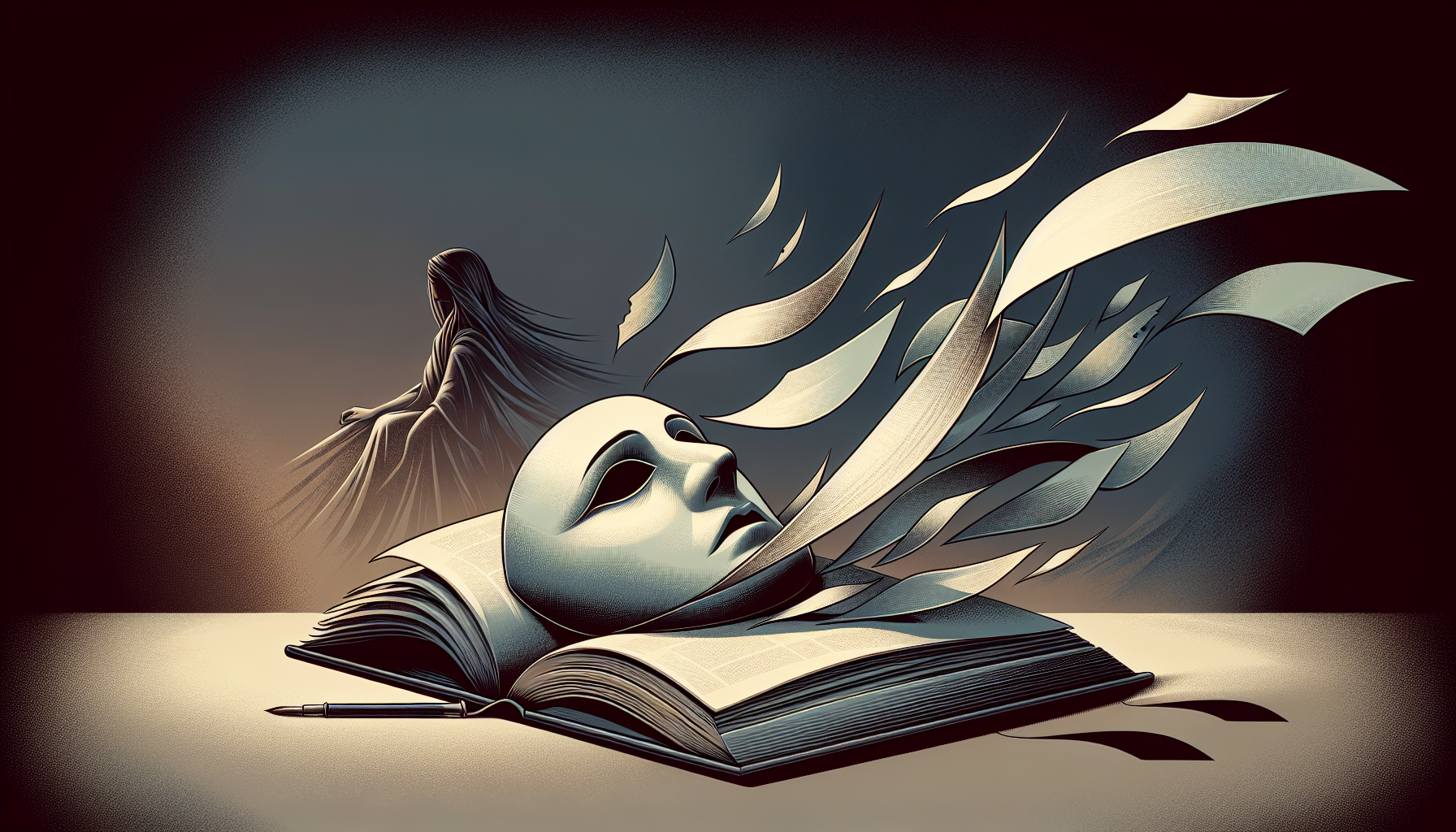When it comes to storytelling, many of us have encountered plots filled with despair, fate, and tragic flaws that leave a mark. It’s no secret that classic tragedies resonate deeply, sparking thoughts about human nature and the flaws we all share. You might wonder which story premise fits this mold perfectly, and you’re definitely not alone in that curiosity.
If you stick around for a bit, we’ll explore what really defines a classic tragedy. Together, we’ll delve into its key elements and uncover some timeless examples that still tug at our heartstrings today. By the end, you might find yourself reflecting on how these tragic tales echo our own lives.
So, grab your favorite snack, and let’s journey through the elements of a classic tragedy, compare it with other genres, and see how it shapes our emotions. You might just discover the classic story that encapsulates tragedy at its finest!
Key Takeaways
- Classic tragedies focus on human suffering and moral dilemmas.
- The protagonist often has a tragic flaw that leads to their downfall.
- Key elements include a tragic hero, a fatal flaw, and catharsis for the audience.
- Examples like “Romeo and Juliet” and “Death of a Salesman” highlight themes of love and ambition.
- Tragedy differs from comedy and horror by emphasizing internal struggles and irreversible choices.
- Classic tragedy encourages audience introspection about their own choices and consequences.

Identifying the Classic Tragedy: Key Story Premises
Classic tragedy often revolves around themes of human suffering, moral dilemmas, and a protagonist whose flaws lead to their downfall.
This central character typically faces a significant choice that carries heavy consequences, impacting not just themselves but those around them.
For example, in Shakespeare’s “Macbeth,” ambition drives the protagonist to commit murder, leading to his tragic end.
Another common premise involves the struggle against fate or destiny, emphasizing that no matter the character’s efforts, they cannot escape their predetermined path.
By understanding these core elements, writers can effectively craft stories that resonate deeply with their audience.
The Elements of a Classic Tragedy in Storytelling
A classic tragedy is characterized by several key elements, such as a tragic hero, a fatal flaw, and catharsis.
The tragic hero is usually of noble birth and possesses qualities that make them relatable yet flawed.
Their fatal flaw, or hamartia, is the characteristic that leads to their downfall; think of it as their Achilles’ heel, whether it’s pride, ambition, or a longing for revenge.
Conflict arises when the hero tries to achieve their desires, often resulting in a struggle against external forces or inner demons.
Catharsis refers to the emotional release the audience experiences, feeling pity or fear for the hero, which ultimately leads to a greater understanding of the human condition.
Ultimately, these elements combine to create a rich narrative that captivates audiences, prompting them to reflect on their own lives and choices.
Examples of Classic Tragedy Story Premises
One classic example of a tragedy is “Romeo and Juliet,” where two young lovers are doomed by their feuding families.
Here, love is both a beautiful and destructive force, leading to conflict, loss, and eventually, the death of the protagonists.
Another well-known story is Arthur Miller’s “Death of a Salesman,” which explores the life of Willy Loman, a man struggling to achieve the American Dream.
Willy’s tragic flaw is his inability to see reality, which results in personal and familial destruction, reflecting broader societal issues.
These premises showcase how varying elements—love, ambition, and familial conflict—serve to dramatize human experiences and highlight the consequences of individual choices.
Comparison of Classic Tragedy with Other Genres
When you contrast classic tragedy with other genres, the emotional depth and focus on human flaws become pronounced.
For instance, comedies often explore humor and misunderstandings, leading to happy endings, while tragedies delve into the darker aspects of life and human existence.
Unlike horror tales, which evoke fear from external threats, tragedies reflect internal struggles and moral conflicts, prompting a different kind of emotional response.
Realistic fiction can sometimes blur the lines between tragedy and everyday life, but traditional tragedies remain distinct in their emphasis on irreversible choices and despair.
Recognizing these differences can deepen your appreciation for the nuances within each genre, enriching your storytelling skills.

Impact of Classic Tragedy on Audience Emotions
Classic tragedy significantly impacts audience emotions by invoking deep feelings of pity and fear.
This emotional response is largely attributed to the connection the audience forms with the tragic hero.
As viewers witness the hero’s struggles and inevitable downfall, they see reflections of their own vulnerabilities and fears.
This connection is not just superficial; it’s woven into the fabric of the story through relatable experiences, be it love, loss, or ambition gone awry.
For instance, when watching “Hamlet,” audiences might feel a mix of empathy and dread as Hamlet grapples with his quest for revenge.
By experiencing this turmoil alongside the characters, viewers gain a better understanding of the human condition.
Ultimately, this cathartic experience encourages introspection, prompting audiences to think about their own choices and the potential consequences.
Conclusion: Significance of Classic Tragedy in Literature
The significance of classic tragedy in literature lies in its ability to explore the depths of human experience.
Through its focus on moral dilemmas and the tragic flaws of characters, it sheds light on our shared vulnerabilities.
These narratives act as mirrors, reflecting society’s values and conflicts across different eras.
For writers, understanding the elements of tragedy can enhance storytelling, ensuring that themes resonate with readers.
This genre teaches us about resilience and the weight of choices, making it an essential component of literary study.
As you write your own stories, consider how elements of tragedy could deepen emotional impact.
Whether you’re penning a drama, a novel, or a script, infusing tragedy can elevate your work.
In this way, classic tragedy remains relevant, continuing to shape literature and influence storytelling for generations to come.

FAQs
Key elements of a classic tragedy include a tragic hero, a tragic flaw (hamartia), catharsis, and inevitable doom. These elements combine to evoke pity and fear, leading to a profound emotional experience for the audience.
Classic tragedy profoundly impacts audience emotions by invoking feelings of pity and fear, leading to catharsis. This emotional release allows viewers to reflect on their own lives and the human condition.
Classic tragedy often focuses on serious themes and moral dilemmas, contrasting with comedic genres that emphasize humor. While tragedies evoke strong emotions and reflection, other genres may prioritize entertainment or light-heartedness.
One prominent example of classic tragedy is Shakespeare’s “Hamlet,” which features a tragic hero grappling with betrayal, revenge, and mortality. Hamlet’s tragic flaws lead to his eventual downfall, illustrating the genre’s core themes.
